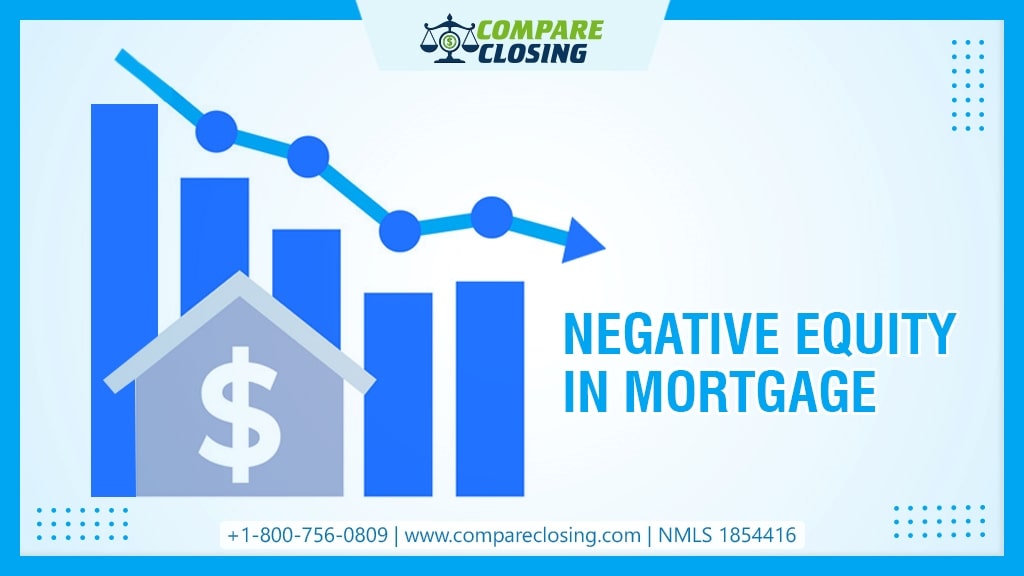Table of Contents
- What Are Netting Escrows & How Does It Work?: The Best Guide - January 2, 2024
- The Secret About Prescriptive Easement: Top Guide 1 Must Know - December 4, 2023
- About Home Equity Loans In Texas And How Can One Obtain It - November 27, 2023
About Negative Equity in Mortgage
When you buy a real estate property, you put some portion of your own money which is known as your equity.
As you pay your mortgage down and your home value appreciates your share in your property increases, meaning you gain positive equity.
However, what happens if the property values drop significantly? In this post, we will understand what is negative equity, and how it works.
What Is Negative Equity?
An asset is considered to have negative equity when its value falls below the mortgage balance. This means you owe more on the mortgage than the value of the property.
Though this isn’t always avoidable, understanding why it happens can help you figure out the best way to turn it into positive equity.
To determine if a home’s equity is negative or positive, all you need to do is subtract your mortgage balance from the current property value.
For example, if your home is worth $400,000 and you have a mortgage balance of $250,000, you have $150,000 in positive equity.
On the other hand, if you sell your home for $200,000 and owe the lender $250,000, you have a $50,000 negative equity.
How Does Negative Equity Work?
To understand the negatives, we first need to understand what we call “positive home equity” or more commonly home equity.
Positive equity is the value of the homeowner’s interest in the home. It is calculated as the current market value of a property minus any liens or mortgages attached to the property.
This rate changes over time as the mortgage payment is made and market conditions affect the current value of the property.
If part or complete house is purchased through a mortgage, the lender owns the interest in the house until the loan is paid off. Home equity is the portion of a home’s current value that the homeowner owns for free.
Positive equity can be obtained initially by the homeowner by making a down payment or by gradually paying down the principal amount every month.
While making regular payments, the homeowner can also benefit from property value appreciation which adds to the home equity.
If the property values drop significantly and the mortgage balance is more than the current property value, the property is considered to have negative equity.
If the borrower sells the property in such condition, the borrower is responsible to pay for the remaining balance on the mortgage to the lender.
What Could Cause Negative Equity?
There are many reasons why an individual may fall into such a situation.
Real Estate Market Crash: This is one of the most common reasons owners encounter negative equity.
They can buy a house or take out a mortgage when the market is at its peak, however, if the economy is down, it leads to lower house prices.
Structural Issue in Property: The home value also depends on the condition of the property.
If there are major structural issues in the property, the value of the property may decline significantly. Maintain your home, fixing problems as soon as they arise and improving them if possible.
Low Or No Down Payments: The more money you invest in your home, the more assets you have in the first place, which protects you from economic downturns.
If you purchase a property with low or no down payments, you have very little skin in the game in the first place, and if the market overturns and the home prices drop you would immediately turn the property under water.
It is better to play safe, save enough money for the down payment, and look for more affordable properties.
Conclusion
There could be some situations in which it might not be possible to avoid negative equity.
The best way to avoid it is to ensure you have made a good amount of down payment and keep your property properly maintained.
This way even if the housing market crashes, you would still have some part of your equity in the house.
Amanda Byford
Amanda Byford has bought and sold many houses in the past fifteen years and is actively managing an income property portfolio consisting of multi-family properties. During the buying and selling of these properties, she has gone through several different mortgage loan transactions. This experience and knowledge have helped her develop an avenue to guide consumers to their best available option by comparing lenders through the Compare Closing business.





